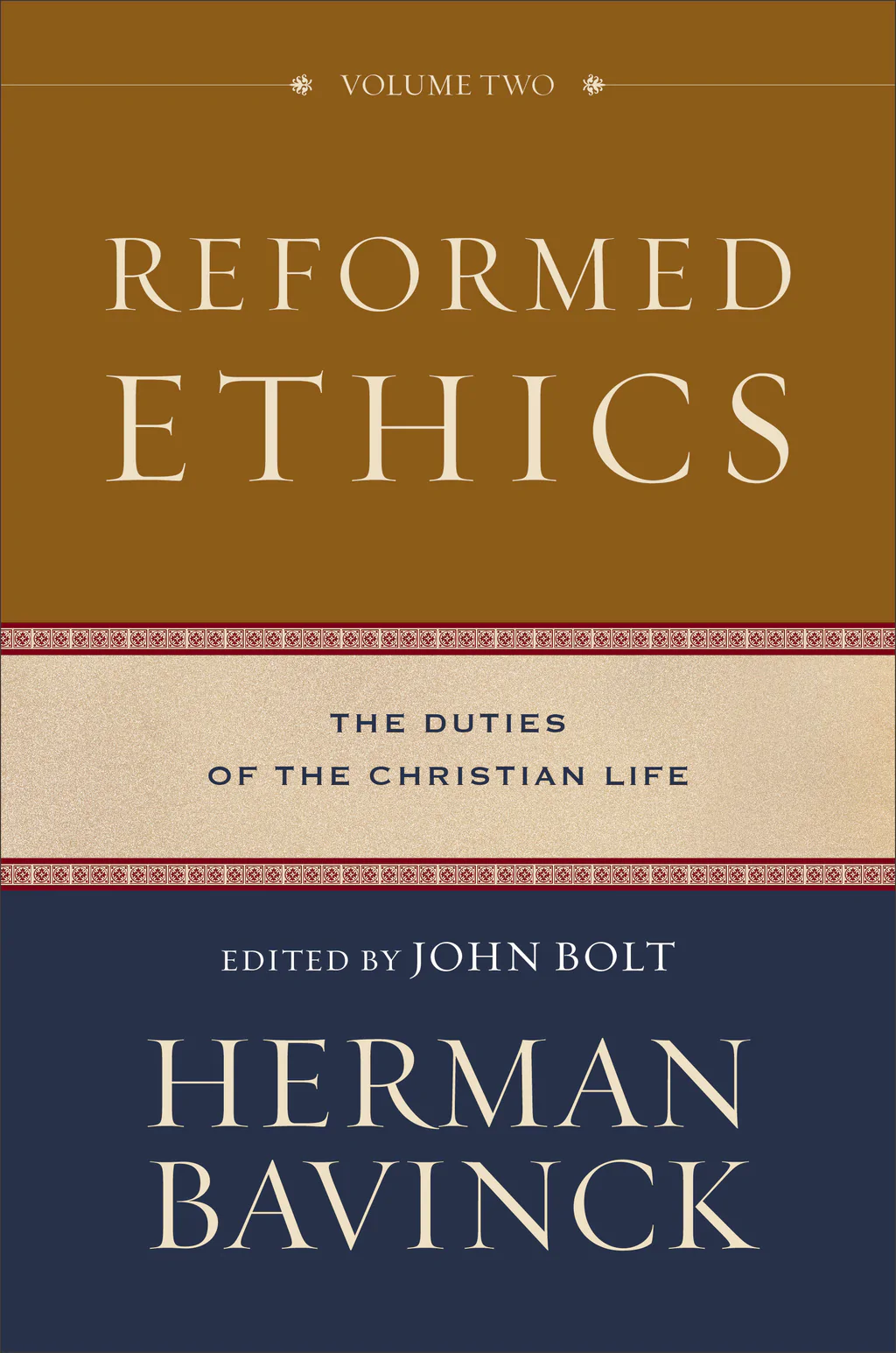
Herman Bavinck
Reviewed by: David VanDrunen
Reformed Ethics, vol. 2, The Duties of the Christian Life, by Herman Bavinck, edited by John Bolt. Baker Academic, 2021. Hardcover, 544 pages, $33.99 (Amazon). Reviewed by OP minister and professor David VanDrunen.
New Horizons readers may be familiar with Herman Bavinck (1854–1921), one of the most accomplished Reformed theologians of the past two centuries. Many of his works have been translated into English recently. Still, if you had asked a Reformed theologian about Bavinck’s “Reformed Ethics” several years ago, he probably would’ve responded: “Bavinck wrote an ethics?” The answer is: “sort of.”
Bavinck held two teaching appointments. The first was at the theological school in the Dutch town of Kampen. There he taught not only dogmatics (systematic theology), for which he’s best known, but also ethics. In middle age, Bavinck moved to the Free University of Amsterdam. He didn’t teach ethics there.
Scholars have discovered Bavinck’s notes for his ethics lectures and also a long manuscript on ethics, which he developed for his teaching in Kampen. The manuscript isn’t entirely intact, but notebooks of three of Bavinck’s students contain detailed transcriptions of his lectures. John Bolt and many assistants have compiled this material to give us what’s now being published as Bavinck’s Reformed Ethics. This is a review of Volume 2 (of three).
Reformed readers have much to be thankful for. These volumes provide insights into one of our greatest theologians and some excellent moral-theological discussions. Nevertheless, the circumstances of their publication raise some questions and frustrations for readers.
Volume 2 concerns Christians’ duties. The first two chapters introduce the idea of duty, and the rest of the book is essentially a study of the Ten Commandments. Chapters 15–17 consider “Our Duties toward God,” chapters 18–20 “Our Duties toward Ourselves,” and chapter 21 “Duties toward Our Neighbor.”
Bavinck’s vast learning is evident throughout. He engages a multitude of patristic, medieval, and early Reformed theologians, ancient and modern philosophers, and a variety of scholars from other academic fields. Bavinck’s frequent description of early Reformed ethical works may be of special interest, since these works are largely unknown to contemporary Reformed people.
Most of Bavinck’s ethical conclusions and his biblical arguments supporting them reflect standard Reformed views. These discussions are generally helpful, although I admit to being disappointed at times not to see a man of Bavinck’s learning offer more original or insightful analysis of issues. Nevertheless, some sections offer excellent spiritual and pastoral wisdom. I think for example of his brief discussion on “the pedagogical significance of illness” (301). I wish there had been more of this sort of material and less of some other sorts, which leads me to two final reflections.
First, readers should contemplate the fact that Bavinck didn’t want this material published. He devoted enormous effort to developing his ethics manuscript, yet he evidently remained dissatisfied with it. He didn’t seek its publication upon writing it and also decided not to revise it later, even though he remained a productive scholar in his later decades and wrote voluminously on other topics. What Bavinck would’ve thought about this posthumous publication we’ll never know. But readers should remember that Bavinck himself didn’t present this to the world as his own great statement on ethics, and we shouldn’t treat it as such.
Finally, the fact that Bavinck never prepared his manuscript for publication is repeatedly evident. Countless pages contain tedious recitations of other people’s views. These sections sound more like Bavinck’s personal reading notes than material designed for other people to read. Also, while some of the most interesting sections are very brief (such as that on illness mentioned above), other sections treat topics at disproportionate length. For example, there’s an extended discussion of clothing (347–362) and it’s not entirely clear why. If Bavinck were writing for posterity, I doubt he would’ve included passing advice, such as that pastors shouldn’t visit church members “wearing a bathrobe” (359). Another example is his long section on suicide (371–384). It reveals that he read an immense amount of material on the subject, but scholars generally don’t try to communicate everything they’ve learned about a topic including useless pieces of information, such as “the first bullfight held in Paris occurred on January 16, 1887” (383).
We can be thankful for this work and appreciate much of its content. But it remains an unpolished product of a (remarkable) scholar who didn’t intend that we read it.
December 14, 2025
December 07, 2025
November 30, 2025
November 23, 2025
November 16, 2025
November 09, 2025
November 02, 2025
© 2025 The Orthodox Presbyterian Church